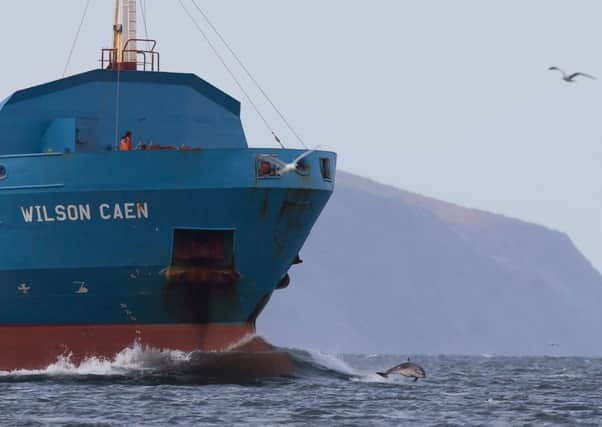NTS fights Moray Firth oil ship transfers


Scotland’s largest conservation charity, which has more than 330,000 members, has submitted a formal objection to the plans put forward by the Cromarty Firth Port Authority.
NTS is highlighting what it claims is the “potential threat of environmental damage that could result in disastrous consequences for wildlife and the local economy”.
Advertisement
Hide AdAdvertisement
Hide AdThe Port Authority has applied to the Maritime and Coastguard Agency to carry out the transfers while vessels are anchored at the mouth of the Firth, which is home to important populations of sea birds and mammals.
Although the NTS does not own the Moray Firth, it runs the nearby cottage of Hugh Miller, the Cromarty-born geologist who undertook pioneering work and made many unique discoveries. In its submission, the NTS criticises the Port Authority’s proposals. In particular it takes issue with its claim that the maximum mass of oil that could be spilt in the course of a transfer would be 1,000kg from a fractured hose.
The NTS submission claims this is “contradicted by the statement ‘Accidental fire or explosion onboard could cause a tank to be breached’ – presumably releasing up to the entire 180,000 tonne complement of the tanker”.
It says a large spill in the Special Protection Area would have a significant impact on seabirds, waders and ducks as well as seals and dolphins. Richard Luxmoore, the NTS’s senior nature conservation adviser, said: “If enacted, the risk of oil spills would be massively increased by a growth in ship-to-ship transfers and a nine-fold increase in oil transport. Spillages would threaten huge concentrations of seabirds and pods of bottlenose dolphins which live in the Moray Firth. Not only are they a source of wonderment, as the subject of a university study centre, they attract thousands of visitors each year. Oil spills would also threaten the shoreline with waste oil that would pollute the coast and threaten the quality of life for local communities.
“I do understand the pressures the oil industry is under at present but to threaten such an important area with irretrievable damage for the sake of short-term efficiencies is totally irresponsible.”
Bob Buskie, chief executive of the Port of Cromarty Firth, said: “We fully understand the concerns and have explained the many environmental safeguards that would be put in place if the licence was granted. We have to stress the port takes its environmental responsibilities extremely seriously, in fact the port has a legal responsibility to safeguard the environment of the Firth. This type of ship-to-ship transfer has been carried out within the port for many years without incident.”